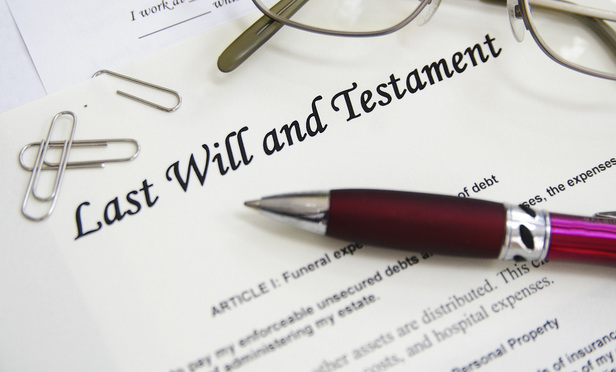A document that appears hopelessly flawed may well be admitted to probate, due to the court’s focus on honoring the decedent’s intent. In this article, we will examine recent trends for problematic wills, namely improperly executed wills, post-signing changes to a will and a lost original will.
Improperly Executed Will
The familiar rule from N.J.S. 3B:3-2 is that a will (with certain exceptions) must be in writing, signed by the testator, and by two witnesses who either witnessed the signing or the testator’s acknowledgment of his signature of the will. However, N.J.S. 3B:3-3 provides for deemed compliance with N.J.S. 3B:3-2 if the proponent of a document or writing thereupon can demonstrate by clear and convincing evidence that it was intended to be the decedent’s will or a modification thereof.
This content has been archived. It is available through our partners, LexisNexis® and Bloomberg Law.
To view this content, please continue to their sites.
Not a Lexis Subscriber?
Subscribe Now
Not a Bloomberg Law Subscriber?
Subscribe Now
LexisNexis® and Bloomberg Law are third party online distributors of the broad collection of current and archived versions of ALM's legal news publications. LexisNexis® and Bloomberg Law customers are able to access and use ALM's content, including content from the National Law Journal, The American Lawyer, Legaltech News, The New York Law Journal, and Corporate Counsel, as well as other sources of legal information.
For questions call 1-877-256-2472 or contact us at [email protected]



